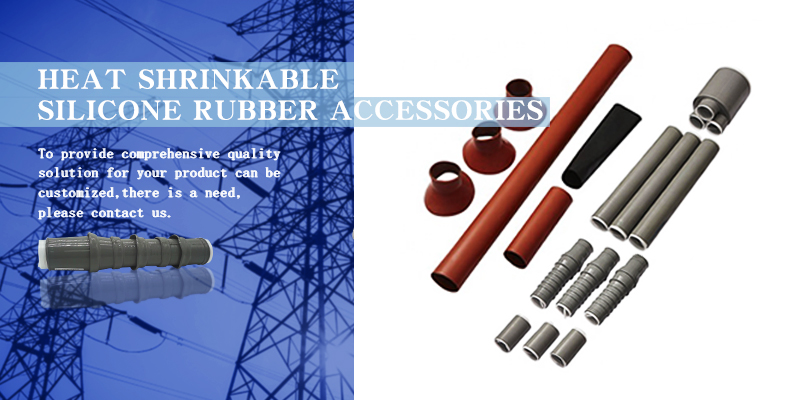Heat-shrink tubing(or,commonly,heat shrink or heatshrink)is a shrinkable plastic tube uesd to insulate wires,
providing abrasion resistance and environmental protection for stranded and solid wire conductors,connections,
joints and terminals in electrical work.
Heat shrink sleeving is a particularly useful form of insulating sleeving. It can be bought in long lengths and in a
variety of diameters. Typically, when used, the required length is cut from the main length, and this is slipped
over the area that requires protection.
For the smallest heat shrink tubing, expanding it to double its size may reduce its thickness by up to 50%, which
is 0.1 mil. Multiple this by its withstanding voltage of 500V/mil, and the smallest heat-shrink tubing will still
withstand 50V.
Often confused with stretch film, heat shrink wrap consists of a wide variety of plastic materials designed to shrink
after heat is applied. Common plastics used to produce heat shrink wrap are: polyolefin, PVC, polyethylene, and
polypropylene. Heat shrink wrap is used as a packaging solution all around the world.
Some Heat shrinks are specially designed to be used in harsh environments and operate at even at -65°C to +260°C
and can also act as good protection against water and moisture. The ATUM, CGAT, C-Wrap, Rayseal, HTAT, and SCL
are some popular sleeves that can be used in harsh environments
Most plastics are not good conductors of heat. Making “foam” from plastic can also improve its properties as a thermal
insulator. Styrofoam, for example, is an excellent thermal insulator because it contains a great deal of air trapped by
the polystyrene.
Produced at a larger-than-needed size, M23053 adhesive lined heat shrink are heat-shrunk to a tight fit. Once shrunk,
the adhesive shrink tubing is a perfect and aesthetically-pleasing fit for its components. Polyolefin Adhesive Lined Heat
Shrink is designed to encapsulate and protect other cables and cable bundles.
Post time: Jan-05-2022

